І. Що е философия
1. Разлика между философията и другите науки и словесни дейности
Философията е разговор и размисъл за неща, които засягат всеки човек. Тя не е математическа наука, защото не работи с числа или предварително дефинирани пространствени представи; не е експериментална, която да установява закономерности в природата, като открива повторения и прилики; не е историческа, която се аргументира чрез свидетелства; не е художествена литература, защото не изобразява. Най-трудно е да бъде различена от реториката. Реториката цели убедителност (въздействие), а философията се интересува от истината.
2. Въпроси на философията
А. Тяло, смърт, любов
а. Що е човекът - по-скоро тяло или по-скоро нещо различно, макар и свързано с тялото?
б. Човекът смъртен ли е изцяло (като тялото) или има нещо, свързано с тялото, което не е смъртно?
в. Любовта към тялото ли е отправена или към онова нещо, което е различно от тялото, макар и свързано с него?
Б. "Човешко", равенство, закон, Бог
а. Дали у хората има нещо общо и съществено ("човешко"), според което те са близки и, взети заедно, са принципно различни от всички други същества? Или напротив - те са само видимо и на думи подобни, но нищо съществено и устойчиво не ги прави близки?
б. Ако "човешкото" съществува, дали то е такова, че хората са по-скоро равни, или е такова, че някои са по-висши, а други - по-низши?
в. Дали човекът е такъв, че би могъл да съобразява действията си по-скоро със закона, отколкото с удоволствието? Ако е така, кое е за предпочитане?
г. Съществува ли Бог, или не? И ако съществува, какво да мислим за Него?
В. Истина, сетива, думи
а. Дали човек би могъл да знае истината за споменатите неща, или би могъл да има най-много несигурно мнение за тях?
б. Ако би могъл, какъв е начинът да се постига истина? Дали това става по-скоро чрез сетивата, или по-скоро чрез мисълта?
в. Ако е възможно чрез мисълта, дали това става по-скоро чрез слово (думи), или по друг начин (числа, въображение)
г. Ако е по-скоро чрез думи, дали има определени закони за размисъл с думи (логика), или не?
ІІ. "Пирът"
1. Пролог. Аполодор говори пред приятели
Аполодор, запитан от приятели, дали може да им предаде разговора, който Сократ, Аристофан, Алкивиад и други са водили преди години за любовта, казва, че е готов. Защото само преди ден някой Главкон (може би това е бил братът на Платон) го попитал дали е присъствал на вечерята у Агатон, когато се провел този разговор. Но Аполодор го уверил, че е твърде млад, за да е бил там; но знае за разговора от един Аристодем, почитател и спътник на Сократ през онези години. Та Аполодор предал на Главкон разказа на Аристодем, докато вървели от Фалерон към Атина. И сега го повтаря пред събеседниците си (някои от които били богати хора и търговци, както се разбира от обръщението му).
2. Подготовка за пира. Сократ и Аристодем отиват у Агатон
Аристодем срещнал Сократ, който бил измит и обут - неща, които рядко му се случвали - и узнал, че отива на гости у Агатон. Тръгнали двамата - посрещнал ги роб и въвел Аристодем; Агатон го посрещнал радушно и се извинил, че пропуснал да го покани; а Сократ останал отвън. Аристодем, комуто измили краката и настанили на едно от леглата, обяснил, че на Сократ често му се случва да внезапно да спира някъде сам и така да си стои - но щял да дойде.
След малко Сократ дошъл, разменили си няколко любезности с Агатон относно това, кой е по-знаещ - всеки твърдял, че другият е по-знаещ - после всички гости вечеряли, помислили дали да пият повече или по-малко и решили да се въздържат от много пиене, защото вчера били прекалили. Отпратили и флейтистката при жените. Сред гостите, които решавали колко да пият, били още Павзаний, Ериксимах, Аристофан и Федър.
3. Речи в прослава на Ерос
а. Федър
Ерос е много стар бог. Той е причина за големи блага. Такова благо за любимеца е влюбеният, както и обратното. Любимецът и влюбеният се стремят да се харесат един на друг и затова избягват срамните дела, а се стараят да извършват красиви – примерно, храбри са в битка. Готови са дори да умрат за любимия – така са направили Алкестида която е умряла вместо съпруга си Адмет, и Ахил, който е отмъстил за влюбения в него Патрокъл.
б. Павзаний
Съществуват две Афродити и следователно два Ероса. Само онзи Ерос, който подбужда към красива любов, е достоен за похвала. Другият, Простолюдният, се проявява в хората с ниска природа, които обичат също и жени (а не само момчета), поставят тялото над душата и в любовта предпочитат да контактуват с по-глупави хора.
Другият, Небесният, е насочен към мъжкия пол, който е по-силен по природа и е надарен с повече ум. Издигнатите хора се насочват към вече пораснали младежи, у които се проявява разумът. Те би следвало да се въздържат от любов както към деца, така и към свободни жени. Някои от тези неща трябва да се уредят дори с писан закон, защото са важни за държавата.
В други държави тези отношения са уредени по друг начин – някъде тази любов е допустима и не се нуждае от много думи, както в Спарта; другаде пък е направо забранена, заедно с интереса към спорта и към знанието. Защото тези неща – любовта към младежи, спортът, знанието - създават приятели и свободолюбиви хора, а тези държави – варварски или гръцки, но повлияни от варварите – са тиранични.
Тук при нас, в Атина, е по-добре – намираме за прекрасно както някой да обича, така и да е приятел на влюбен. Но пък понякога родителите определят на децата си надзорник, който не им позволява да общуват с ухажорите си. Това обаче не е отрицание на тази любов, а е мярка срещу порочните (от простолюдието) влюбени.
Влюбеният се познава по това, че е готов да извърши всичко за обичания и понякога заприличва на роб. Но това е доброволно и непозорно робство, защото то има за цел добродетелта. А да се стремиш към добродетел дори с такива средства не е грозно; и в тези отношения няма ласкателство. Желанието да стане достоен човек е единственото похвално основание за любимеца да бъде благосклонен към влюбения. И така, Еросът, който свързва такива хора и по такъв начин е извънредно ценен и за държавата, и за отделните лица.
в.Ериксимах
Медицината е наука за любовта и за съгласието между противоположните (неподобните) елементи в тялото на човека. Тя е част от една по-обща наука, кото се занимава с доброто съчетание на елементите в природата. Тази наука се проявява и в правенето на музика. Защото Небесният Ерос, за който говореше Павзаний, действа не само между хората но и навсякъде по света и навсякъде и причина за съгласие и носи блага.
В любовта този Ерос помага на порядъчните хора да станат още по-порядъчни; а другият, Простолюдният, е само за удоволствието; ние можем да си служим и с него, но трябва да сме предпазливи, за да не стигнем до разпуснатост.
Добрите сезони и плодородието идват от единия Ерос, а бедствията и болестите – от другия; това са явления, за които ни осведомява астрономията, която също е наука за Еросите – познава и предсказва добрите и лошите отношения между небесните тела.
Мантиката (гадателството) пък е наука за отношенията ни с боговете. Според нея всяко неблагочестие се явява, когато човек се отдаде на порочния Ерос. Тя също наблюдава любовта и така поддържа приятелството между богове и хора – защото вижда кои прояви на любовта са свързани с божествения закон и кои му противоречат.
г. Аристофан
д. Агатон
4. Реч на Сократ
5. Поява на Алкивиад. Спомените на Алкивиад
6. Краят на пира
ІІІ. Философията на Платон
IV. Преди и след Платон
V.Елинистическата философия. Висшето образование през античността
VI. Съвременни учени за Платон
2. "Пирът"
The speakers of the first group (Phaedrus, Pausanias, Eryximachus) draw a fundamental distinction between a good and a bad variety of love, while those of the second group do not. This development comes to a head with Diotima's teaching that love in any of its manifestations is directed towards good.
Pausanias draw the obvious contrast with lovers who are more concerned with the body than the soul, and who therefore do not take virtue into account. Phaedrus does not; but the contrast is implicit in his claim to know of no greater good for a young boy than a "decent" or "worthy" lover.
Aristophanes announces a break with Pausanias and Еryximachus's scheme of things… The break is to see love not sundered into good and bad, but as a single aspiration, common to all and directed (despite differences of sexual orientation) at the same generic object - wholeness…
Agathon failed to see that love's nature is to seek the good, rather than to possess it; but it turns out, that he was not wrong to claim that love is praiseworthy in its very nature; for to seek the good is praiseworthy. And this is to reinstate the message of Aristophanes'tale: that love is above all a search for what has been lost.
Diotima returns to the topic of specific love. Specific love is in fact not, as Socrates (and Agathon) suppose, love of the beautiful, but rather "of begetting and giving birth in the beautiful". In the specific case beauty takes the role of midwife to generation, prompting those fertile in body, both animal and human, to engender offspring who can renew their line and (for humans) keep their name alive, while those men who are more fertile in soul than body will be inspired by a boy who combines bodily beauty and beauty of character to give birth to fine discourse about civic virtue with a view to his education. At the level of Lesser Mysteries she describes the ultimate good - the goal of generic love, toward which all human actions are directed - as "immortal virtue and the glorious fame that follows". The "love of honor" is the highest human aspiration here. But when introducing the topic of generic love, Diotima has prepared us to accept the "love of wisdom" as one of its manifestations; and in the Greater Mysteries it will be philosophy that leads us to the ultimate goal.
The philosophic initiate begins, then, at level lower than that attained by the honor lover in the Lesser Mysteries (whom he will overtake in due course). His starting point is higher than the level of the fertile merely in body, however; for their love engenders human offspring, whereas his produces discourse… We next find him having come to prize beauty of soul over beauty of body. We are not told how he made the transition, but only that these are stages along the way that he "must" visit if he is to achieve the highest goal… Compelled, in his role as mentor, to consider beauty of activities and laws, he comes to a conclusion about it that is independent of his educative purpose (just as he spent more thought on bodily beauty in general than was necessary for the purpose of seduction). The lover will think the beauty of bodies a thing of no importance...
At the next stage of his development, accordingly, he is not attached to an individual, but is attracted rather by the beauty of knowledge in its various forms, which causes him to give birth once again to beautiful discourse - now the discourse of philosophy.
His (of Alcibiades) is the version on a heroic scale of the danger that Apollodorus, hawking memberships to the Socratic fan club, had illustrated in the prologue on the level of farce: Instead of loving wisdom he falls in love with the wisdom lover - exactly the danger that Diotima attempts to exclude from her ladder of love by banishing individual from the centre of attention when the rung of philosophy has been reached.
G.R.F. Ferrari
3. Философията на Платон
The important things we know for sure about the author of the works collected under the name 'Plato' are roughly these: that he was born in the early 420s BC to a wealthy father by the name of Ariston (his mother's name is in some doubt); that he had a close relationship, at least on a intellectual level, with Socrates; that he spent the larger part of his life in Athens, without interference from the authoritites, despite the profoundly anti-democratic nature of his extensive political writings; that he founded a philosophical 'school', the Academy, which was to survive as an institution for research and reflection, and for teching; that from 367 until his death, he had Aristotle with him in the Academy; and that he died in 347.
However elusive Plato may be, and have been, from a biographer's point of view, there is no doubting the difference he made, as a single individual, to the history of philosophy. Even Stoicism, the great rival of Platonism in the early days of both, can be detected rifling Platonic dialogues to provide material for its own systematic constructions.
Christopher Rowe
4. Преди и след Платон
Who were these men whom we still, even today, refer to as 'the Sophists'?
The meaning of the term 'Sophist' was in principle relatively wide. It could be applied to anyone thoroughly qualified to exercise his profession, be he a diviner or a poet. In this sense, the term was sometimes applied to men such as Plato or Socrates. But it soon came to denote in particular the group of men who are the subject of this book and it remained associated with the kind of teaching that they provided. It was a result of the reactions provoked by this teaching that the word, as used by Plato and Aristotle, acquired the derogatory undertones that it still has today.
Much later on, notwithstanding, a group of teachers keen to draw inspiration from their example also adopted their name: this was the 'Second Sophistic', under the Roman Empire…
They emerged in many different parts of Greece at about the same time; and they all taught for a while in Athens. It is in Athens, only, that we come across them and learn of them.
The greatest of them were Protagoras, who came from Abdera, in northern Greece, on the borders of Thrace; Gorgias, who was from Sicily; Prodicus, from the small island of Ceos; Hippias from Elis, in the Peloponnese; and Thrasymachus, from Chalcedon, in Asia Minor. Others are known just as names and hardly count. Among all these foreigners there were only two men who were natives of Athens, Antiphon and Critias, and neither - certainly not Critias - appears to have been a professional itinerant teacher. There were certainly other Sophists such as the two brothers Euthydemus and Dionysodorus, whom Plato brings to life in his very comical dialogue named after the former…
The only Sophists we really know anything about are the ones in that first group, whose teaching and writing, quite apart from their performance as professionals, made them figure-heads.
Jacqueline de Romilly
By far the greater part of the first book of the Republic is devoted to expounding and critisizing the views of the sophist Trasymachus... It has never been doubted, that the opening statement by Trasymachus represents the position actually held by him as a historical person...
When he first enters the discussion Thrasymachus says that Justice is the interest of the stronger and superior... Forced to choose between two positions, that justice consists in obeying the laws, and that justice consists in seeking the interest of the rulers, Thrasymachus refuses to accept the first...and argues that true rulers never make mistakes as to their interests, even though actual rulers do on occasion make mistakes as to their own interests...
This leads on to Thrasymachus' long speech in which he provides the second and the more extended statement of his position. He now states that justice consists in pursuing another's good... Injustice on the other hand consists in seeking one's own good, and so for the ruler the interest of the stronger who is himself, and for the ruled the interest of the weaker, who are themselves, namely the ruled...
Thrasymachus claims two things... First the just ruled are foolish in seeking the interest of the ruler and the just ruler is foolish in seeking the interest of the ruled. A sensible and wise man seeks only his own interest... Secondly it is injustice which is the true virtue for man since it is by pursuing injustice that men achieve arete and so eudaimonia, since it is by this path alone that they fulfil their needs...
Thrasymachus has raised the question why should I restrict the pursuit of my own interests for the sake of others, and, ever since, this has been one of the central questions in ethics... Plato... proceeds by an analysis of the structure and functioning of the individual human soul, to argue that the source of what is right is indeed not a heteronomous prescription, but autonomous because it is a prescription arising from within our own natures.
Gеorge B. Kerferd
Библиография:
Christopher Rowe. Plato. In: David Sedley ed. The Cambridge Companion to Greek and Roman Philosophy. Cambridge UP 2003-2004.
G.R.F. Ferrari. Platonic Love. In: Richard Kraut ed. The Cambridge Companion to Plato. Cambridge UP, 1992-2005
Jacqueline de Romilly. The Great Sophists in Periclean Athens. Translated by Janet Lloyd. Clarendon Press, Oxford, 1992-2002.
G.B. Kerferd. The nomos-physis controversy. In: G.B. Kerferd. The Sophistic Movement. Cambridge UP, 1981-1999.
About the Latin Academy in the Vatican
13 years ago
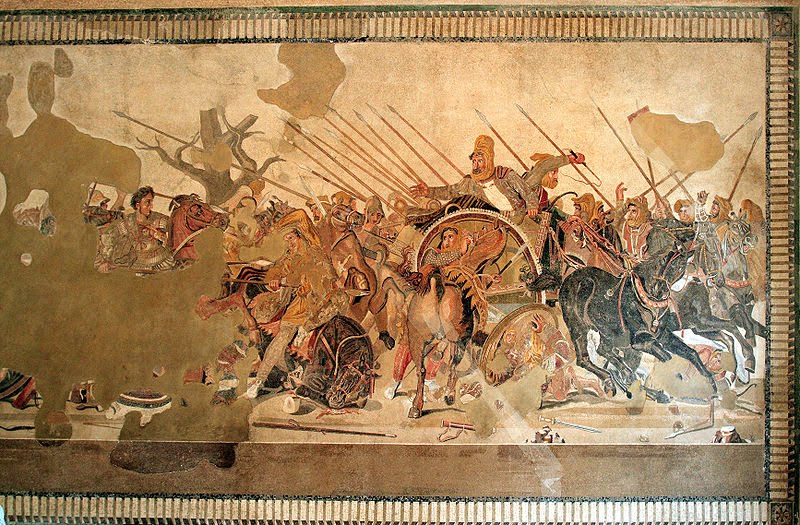
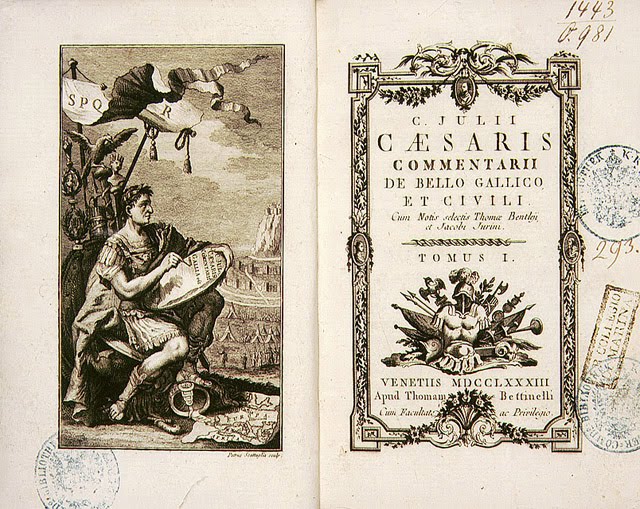
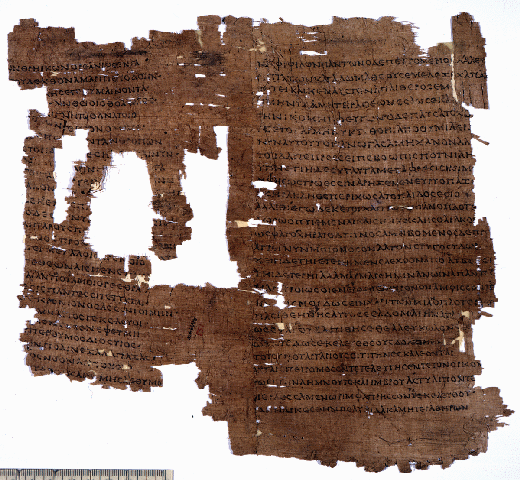
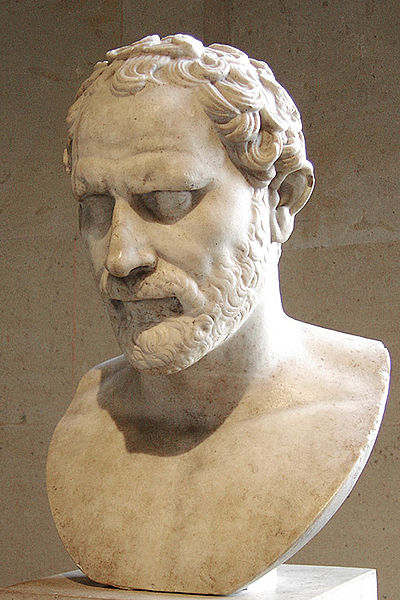


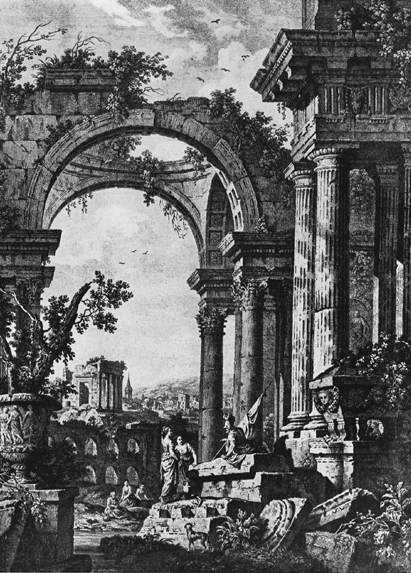




No comments:
Post a Comment